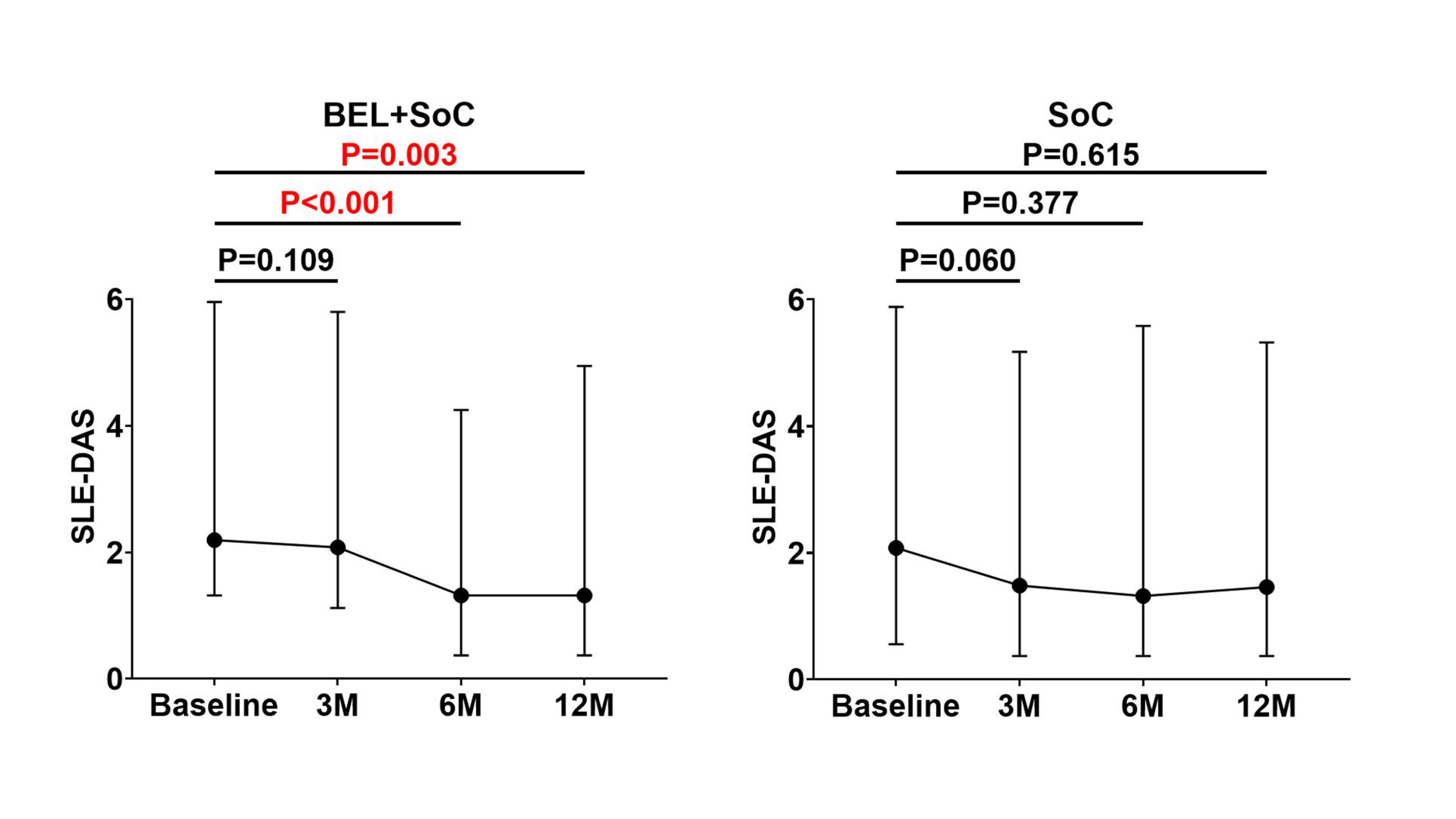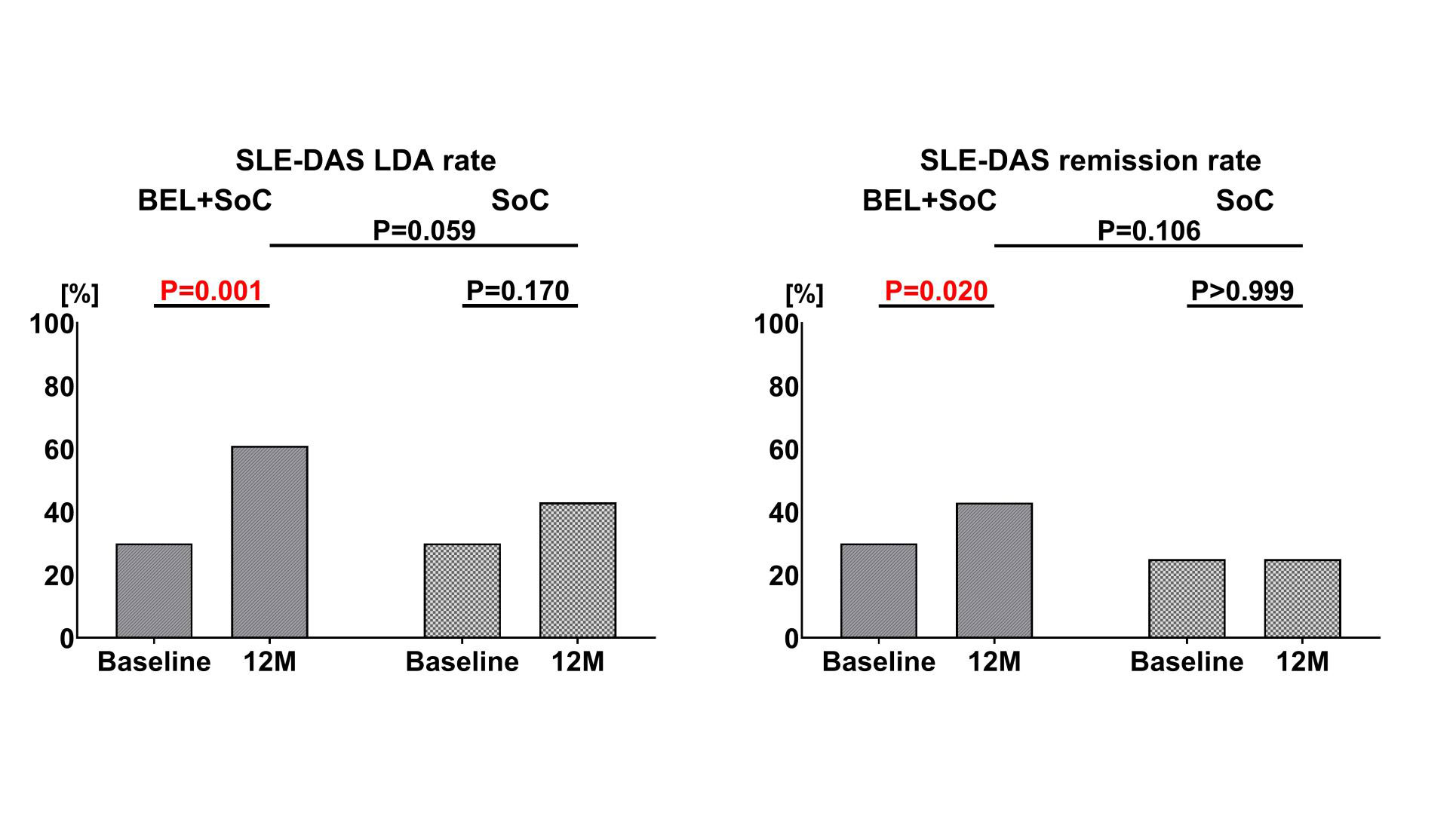Session Information
Date: Saturday, November 12, 2022
Title: SLE – Treatment Poster I
Session Type: Poster Session A
Session Time: 1:00PM-3:00PM
Background/Purpose: Low disease activity (LDA) and remission in patients with systemic lupus erythematosus (SLE) can reduce organ damage accrual and improve prognosis. We investigated the effect of belimumab (BEL) additive to the standard of care (SoC) on achieving LDA or remission in a real-world setting.
Methods: Clinical information was retrospectively collected from SLE patients treated with Soc or SoC plus BEL from our cohort. LDA and remission rate based on SLE-disease activity score (SLE-DAS) were compared after propensity score matching to identify the factors contributing to LDA or remission achievement.
Results: Four hundred forty-two patients were recruited. After propensity matching, 56 patients in each group were enrolled for analysis. SLE-DAS decrease was significant at 12 months in BEL+SoC; 2.20 to 1.32 (P=0.003) compared to SoC; 2.08 to 1.46 (P=0.615). Daily prednisolone dose significantly decreased in both treatment arms; BEL+SoC 7.0 to 5.0 mg/day (P< 0.001), SoC 7.8 to 6.0 mg/day (P< 0.001). LDA and remission (P=0.001) (P=0.020) rates were significantly increased (P=0.001, P=0.020) only in BEL+SoC but not in SoC. Addition of BEL to SoC significantly contributed to LDA achievement (hazard ratio (HR) 6.893, 95% confidence interval (CI) 2.351-26.35, P< 0.001) as well as remission (HR 8.195, 95%CI 2.276-52.34, P=0.001). The presence of arthritis at baseline was significantly associated with LDA (HR 12.92, 95%CI 3.186-47.64, P=0.001) and remission (HR 8.861, 95%CI 2.438-25.98, P=0.002) at 12 months.
Conclusion: Our results emphasize the utility of BEL for glucocorticoid tapering, especially in those involving arthritis in patients with SLE. By BEL introduction additive to SoC, achievement of remission, a more stringent treat to target than LDA could lead to a better quality of life by preventing accumulative organ damages.
To cite this abstract in AMA style:
Hasegawa Y, Arinuma Y, Matsueda Y, Oku K, Yamaoka K. The Effect of Belimumab to Achieve Low Disease Activity or Remission Based on SLE-DAS in Systemic Lupus Erythematosus: A Single-center Retrospective Study [abstract]. Arthritis Rheumatol. 2022; 74 (suppl 9). https://acrabstracts.org/abstract/the-effect-of-belimumab-to-achieve-low-disease-activity-or-remission-based-on-sle-das-in-systemic-lupus-erythematosus-a-single-center-retrospective-study/. Accessed .« Back to ACR Convergence 2022
ACR Meeting Abstracts - https://acrabstracts.org/abstract/the-effect-of-belimumab-to-achieve-low-disease-activity-or-remission-based-on-sle-das-in-systemic-lupus-erythematosus-a-single-center-retrospective-study/


